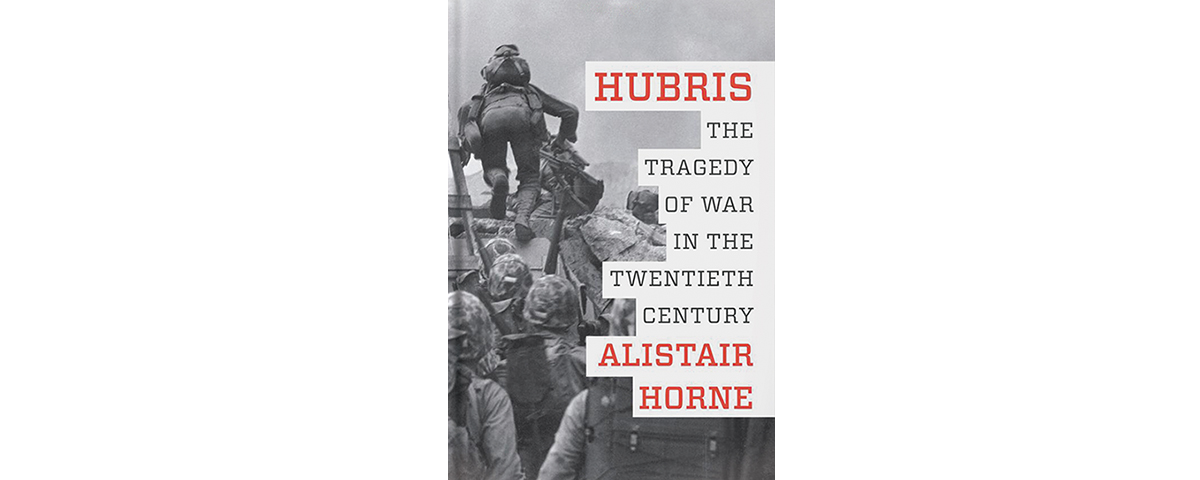Hubris: The Tragedy of War in the Twentieth Century, by Alastair Horne, Harper, New York, 2015, $28.99
Having just turned 90, veteran historian Horne (To Lose a Battle: France, 1940; The Price of Glory, Verdun 1916; Napoléon: Master of Europe, 1805–07) has had time to consider the commonalities of war. In this volume he settles on hubris (excessive pride or self-confidence), delivering his usual riveting account of a half-dozen 20th century campaigns during which one side and often both behaved stupidly—in other words, with glaring hubris.
Horne’s epitome of hubris is pre-1945 Japan. Historians pay generous attention to that nation’s suicidal decision to take on the United States in 1941, but Horne begins even earlier.
History buffs recall Japan’s dazzling victory in the 1904–05 Russo-Japanese War mostly from its naval battles—the first involving steel-armored ships firing long-range guns. As in fleet actions of the world wars that followed, victory favored the side with luck and technical superiority.
Horne emphasizes the more obscure land campaign—which also presaged the coming global slaughter. A large Japanese army conducted repeated frontal assaults against entrenched Russian forces and won, though by a whisker and with dreadful casualties. Easy pickings from World War I reinforced the nation’s vanity, and by the 1930s its leaders took for granted that Japan deserved to rule Manchuria more than the subhuman (in their eyes) Chinese or distant Soviets.
They had little trouble with the Chinese and in 1938 attacked Soviet forces, which initially performed poorly. Unexpectedly, Stalin sent against the Japanese 50,000 men plus hundreds of tanks and aircraft under then unknown General Georgy Zhukov. An obscure, bloody 1939 campaign crushed the Japanese, leading to a truce and nonaggression pact that enabled Stalin to devote his attention to Europe.
These events occupy more than half the book, but Horne does not finish there with Japan. After a fine section on Adolf Hitler’s invasion of Russia, ending in history’s biggest battle, the siege of Moscow, he devotes 50 pages to the Pacific War, mostly the Battle of Midway, before finishing off with admirable accounts of the Korean War and the French debacle at Dien Bien Phu.
Horne admits to emphasizing Japan, as he hadn’t written much about it. Victory made it stupid with hubris, but that’s what victory often does. Bellicose nations with aggressive generals win early battles, turn stupid and lose (witness Napoléonic France, the Confederacy, Germany in two world wars as well as Japan). Winning battles is preferable to losing, but wars are won by resources, persistence and luck. America’s least hubristic generals (Washington, Grant, Eisenhower) required all three attributes.
Horne may not make his case, but readers will enjoy the attempt.
—Mike Oppenheim





